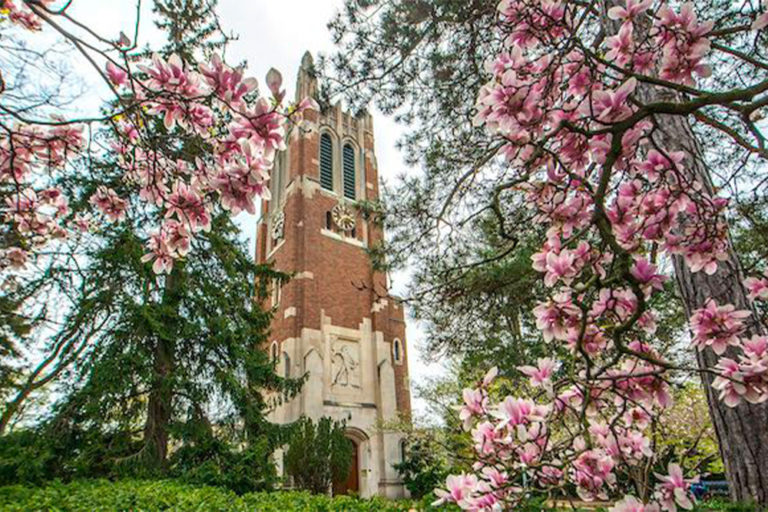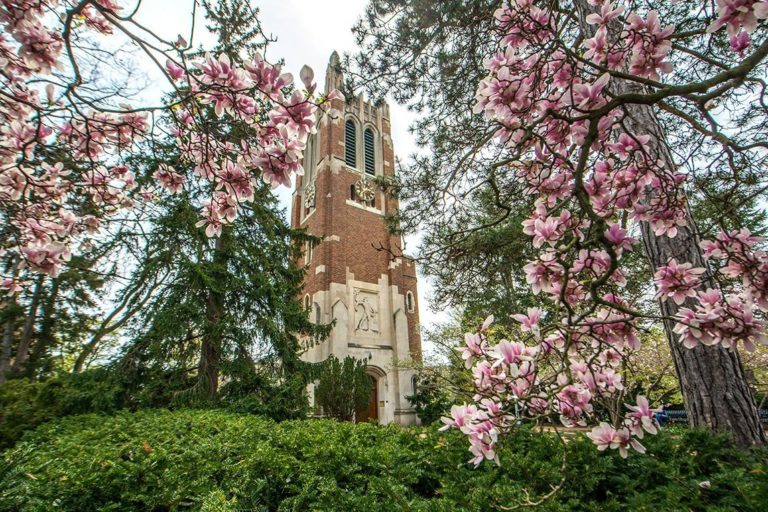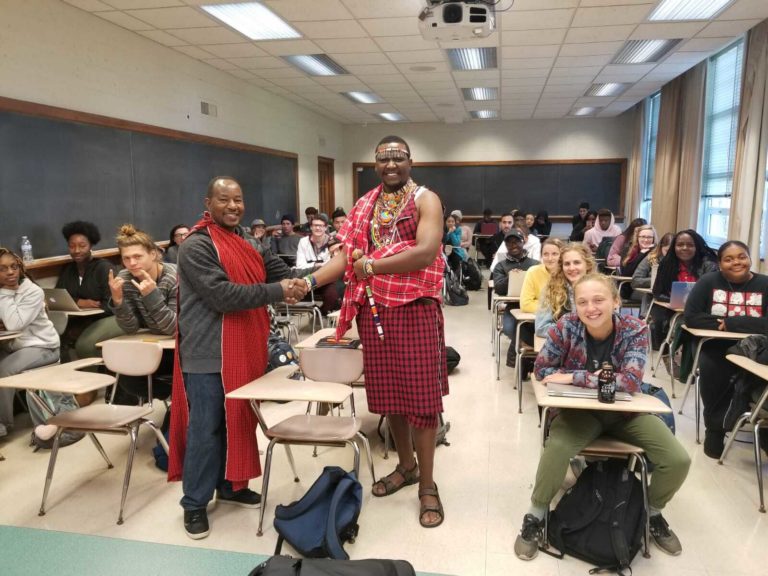This article includes content and personal accounts about the Feb. 13 violence the Michigan State University community experienced and the aftermath. It may be disturbing and upsetting for some people to read. If you are grieving or in distress, there are many ways to seek support, including talking with friends, family, and colleagues. MSU’s Office for Resource and Support Coordination offers many different resources and can also be reached at orsc@msu.edu. There are also services available through MSU’s Counseling and Psychiatric Services, United Resiliency, Keeping Michigan Healthy, and the National Disaster Distress Helpline.
Michigan State University researchers Betsy Sneller and Suzanne Evans Wagner launched the MI COVID Diaries research project in April 2020 to answer questions about how language changes over time and to capture people’s day-to-day experiences.
During the isolation of a pandemic, the project began fostering a sense of connection for a suddenly “remote” community of diarists who submitted stories based on weekly email prompts.
Understanding the potential for support, connection, and healing, the project also became an outlet for people to share their thoughts and feelings following the Feb. 13, 2023, tragedy on MSU’s campus, and it still offers a place for people to share their stories.
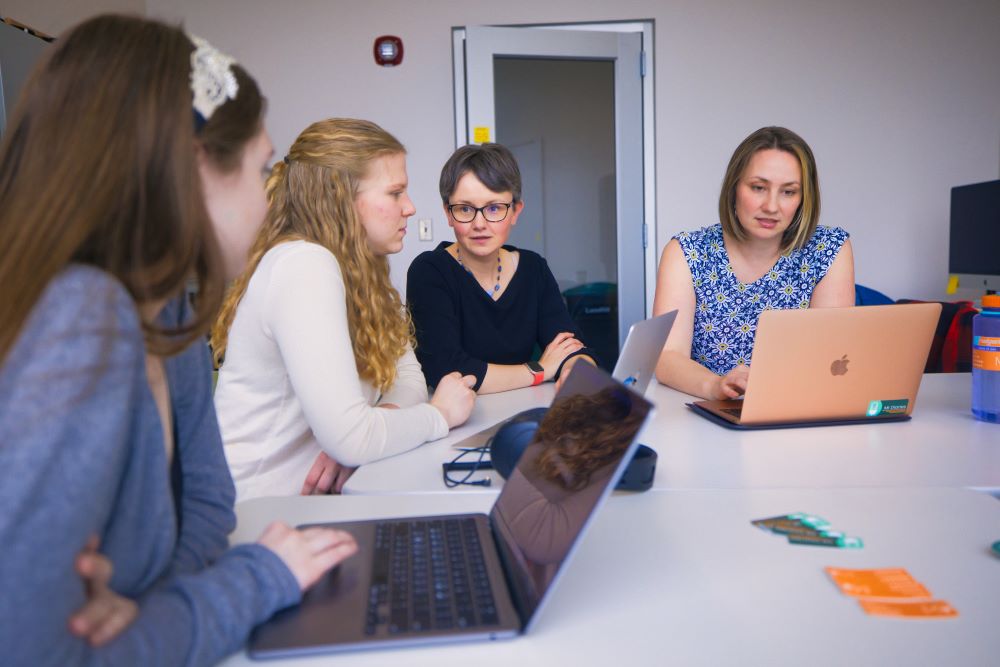
Renamed MI Diaries in 2021, the project has evolved into a multi-year study documenting changes in the lives and language of Michigan residents. Using a mobile app, people of all ages can record their own voices as part of an ongoing record reflecting the daily lives of Michiganders.
“We work hard to curate a sense of community between ourselves and the diarists,” said Sneller, MSU Assistant Professor of Linguistics. “Listening to the stories coming in from diarists after Feb. 13 also helped me to process what I was feeling. They helped me to feel validated.”
Sneller and Wagner are the principal investigators for MI Diaries, which is supported through grants from the National Science Foundation, National Endowment for the Humanities, and MSU. The project also is connected with MSU’s Sociolinguistics Lab and the Department of Linguistics, Languages, and Cultures.
While MI Diaries is an audio collection of stories, it’s also a community, and the stories submitted about Feb. 13 resonated more closely for the MI Diaries team, especially in the weeks following the tragedy.
“We met after the shooting on campus, and we felt like we have this existing repository of stories, and we could use MI Diaries as an outlet for the MSU community,” said Wagner, MSU Associate Professor of Linguistics. “It was a different experience thinking about this collection in a much more thoughtful and intentional way.”
Spartan Stories
That discussion led to the development of the online MSU February 13 Special Collection featuring some of the audio stories received in response to the violence MSU community members had faced. The stories were not only from East Lansing but from around the state. Alumni, students, and other individuals saw MI Diaries as a way to process the emotions they were feeling and to show support for the university.
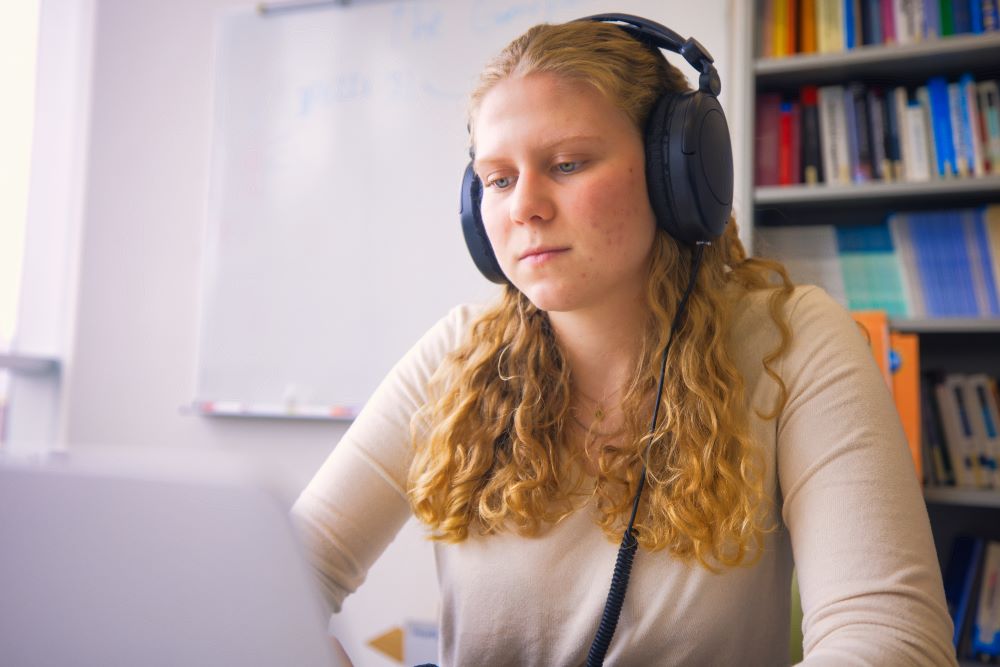
Linguistics senior Caroline Zackerman, a student researcher and project manager for MI Diaries, said the team could hear, even in early audio submissions, that people wanted to share their solidarity with MSU.
“We kind of knew there would be a need for this collection in the diarist community,” Zackerman said. “For the MI Diaries team, it was powerful to hear all these different perspectives on the same thing. It helped remind us that we’re going back to a routine, but it’s not going to be normal, and we’re still processing this together.”
The MSU February 13 Special Collection also is unique in that it was the first time in which MI Diaries put out a broad call to the community to share their stories. Unlike other audio stories, the recordings in this special collection are not a part of the MI Diaries research repository either.
“There was a shift with the MSU February 13 collection from ‘This is something we do as a public service for others and our research,’ to ‘This is something we are doing for our community,’” Sneller said. “It was important to center Spartan voices even if they weren’t regular diarists.”
The MSU February 13 Special Collection is the second MI Diaries special collection in 14 months related to gun violence. The first was related to the shooting tragedy at Oxford High School in Oxford, Michigan, on Nov. 30, 2021.
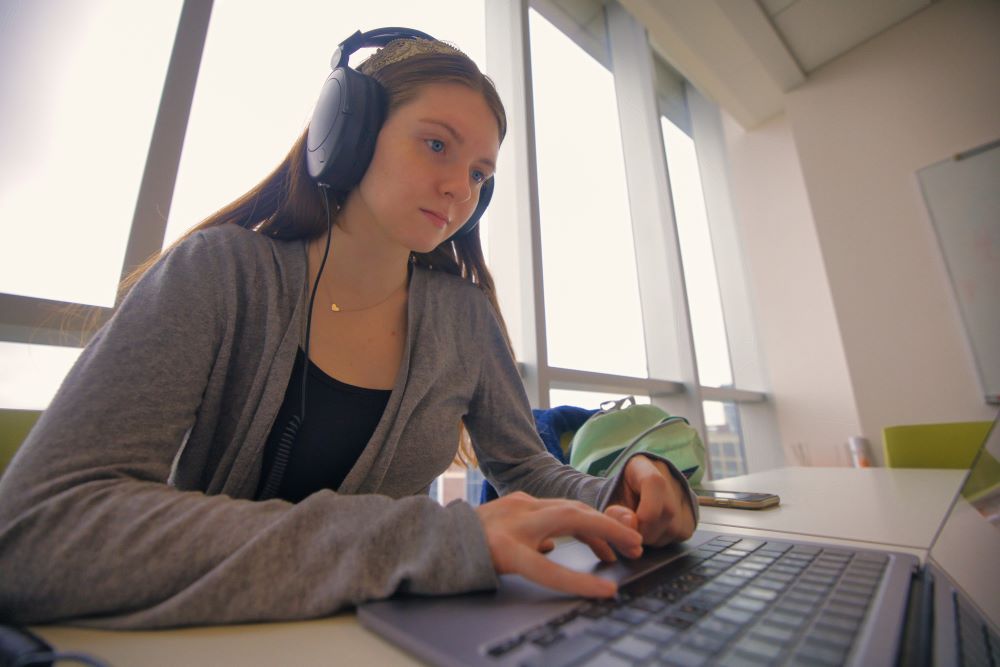
Annabelle McClanahan, a Linguistics junior, listens to stories each week and picks ones to discuss with the MI Diaries team to feature and archive on the website. She also helps with special collections of stories about certain themes and events.
McClanahan said hearing the stories coming in after Feb. 13 made her feel less alone.
“For this to have happened in my current community, it made me very angry,” she said. “In listening to others’ stories, it made me feel OK to feel angry and upset. I had a lot of friends who didn’t know how to feel, and I encouraged them to record their stories.”
Documenting Life and Language in Michigan
One inspiration for MI Diaries was the Mass Observation Project, a U.K. organization that recruited volunteers to write about their lives and opinions through questionaries between 1937 and 1966. That collection provides an important window into people’s everyday experiences of World War II and its aftermath. The University of Sussex revived the project from 1981 to 2009 and added an online database of entries for ongoing study.
Originally, Sneller thought MI COVID Diaries would have about 50 participants and run for a few years. Today, MI Diaries has more than 6,000 individual audio records — 1,000+ hours — from over 1,000 participants ranging in age from 5 to 78, and many of the regulars record and submit stories weekly.
“MI Diaries has a set of values, including being by, for, and about Michigan,” Wagner said. “We want people to be able to authentically talk about their experiences.”
With permission, anonymized audio and transcripts from MI Diaries will be made available to the public and other researchers in perpetuity via a public library repository with the Library of Michigan.
As an ongoing longitudinal project, MI Diaries continues building a document of daily life and a repository of audio data for historic, social, and linguistics research.
“The day-to-day information is still really important. We’re getting rich insights into people’s lives and contributing to a historic archive,” Sneller said. “We plan to continue MI Diaries as long as we have funding for it.”
In 2022, Sneller received a National Endowment for the Humanities grant to develop an open-source mobile app for audio recording based on the MI Diaries app. The new open-source app will support researchers around the world as they record and study audio data.
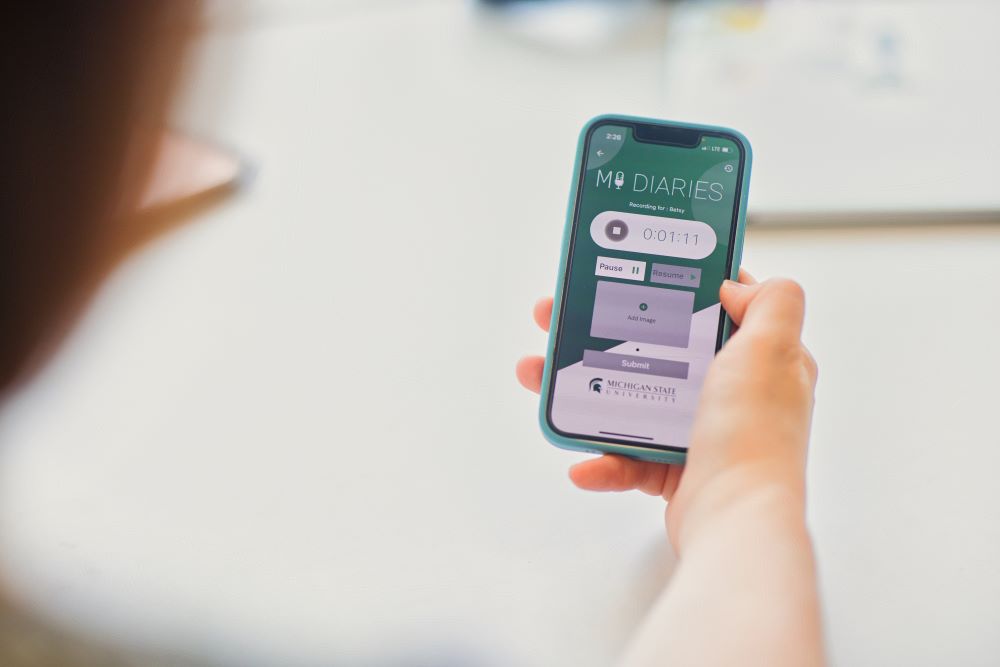
New participants continue to sign up to participate in MI Diaries, often as part of community outreach events including the annual MSU Science Festival and in partnership with public libraries around the state.
“Our project has a very high retention rate even compared to in-person studies,” Sneller said. “People feel like we care about them. They record. We listen. We feature stories and ask questions in email prompts around those stories. It’s a very engaged space.”
In addition to grant funding, an MSU fund is available for giving to the MI Diaries Linguistics Research Project.
Supporting Spartans
Since its inception, MI Diaries has focused on creating a space for authentic and safe sharing of audio stories, as well as maintaining the infrastructure and data for continued inquiry into sociolinguistic development, language changes, and social research.
“People often need to be seen and heard,” Sneller said. “We try to make the experience of participating uplifting. We also want to make space for hard things, for grief, and for being authentic.”
“People often need to be seen and heard. We try to make the experience of participating uplifting. We also want to make space for hard things, for grief, and for being authentic.”
Betsy Sneller, MSU Assistant Professor
The long-term nature of MI Diaries offers the Spartan and Michigan communities ongoing opportunities to share their stories connected with the events of Feb. 13 or participate in the project in other ways in the future.
“To me, the events of Feb. 13 are still incoherent, and maybe I need a little more time to tell my story,” Wagner said. “The beauty of a longitudinal project is it allows people to record stories in the moment, but I also know the project will be around if I want to tell my story later.”
People can still submit their stories about Feb. 13 as part of the related special collection, and stories also can be submitted anonymously.
“Grief and trauma are a process,” Sneller said. “We want to keep the door open for a while as people may want to talk, to tell their stories, later. If you felt affected, you have a story to tell.”
Media Contacts: Beth Bonsall, Alex Tekip
